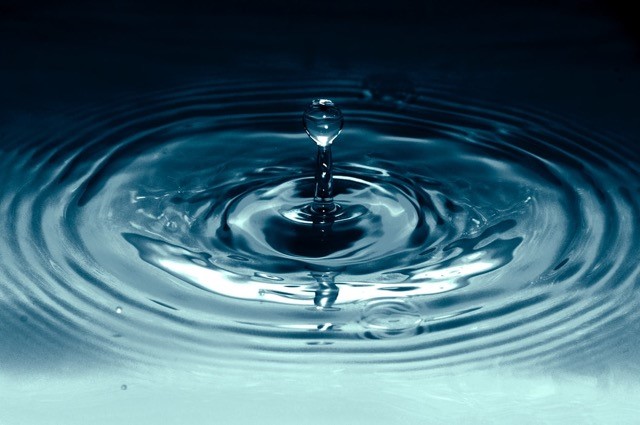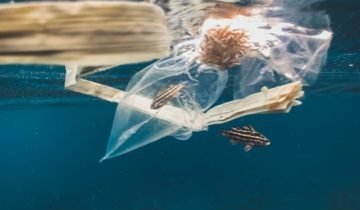# 8 Eco-tips, water consumption
Through this series of articles, we will offer you a weekly insight into the ecological impact of clothing production around the world. With LO NEEL, we are committed to the planet, our Mother Earth, which welcomes and shelters us. We refuse to take part, from near or far, in its pollution, degradation and destruction.
It seemed important to us to denounce abusive practices but also to propose sustainable solutions on a daily basis. We hope that this information will help you to better understand the underbelly of mass production in the fashion industry.
The LO NEEL team also accompanies you in an individual ecological awareness, by proposing to each article of this series of eco-tips to be carried out daily. By following them, this will allow you to have a healthier and more ethical behaviour and consumption.
Here is the eco-tips # 8!
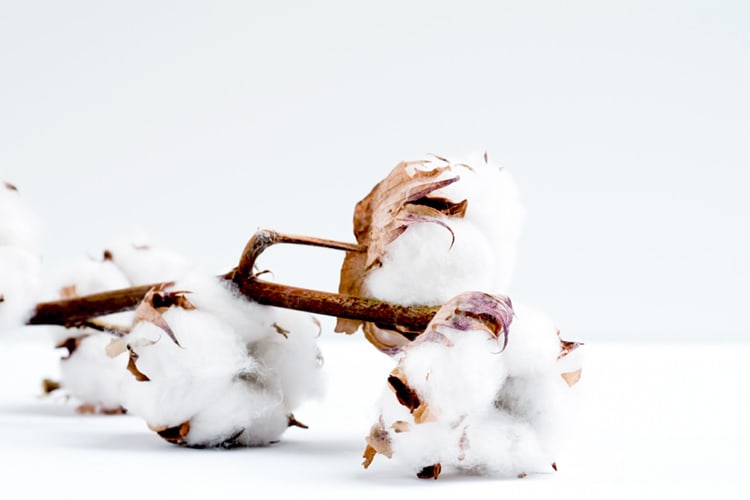
750 Million people around the world do not have access to safe drinking water.
200 tons of treated water are needed to dye a ton of clothes.
1.5 billion litres of water are consumed by the fashion industry every year.
Solution: Choose garments made from fibres that require very little water to produce, such as recycled or organic fibres.
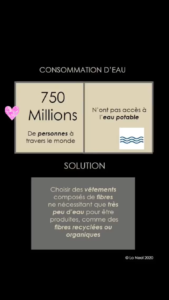
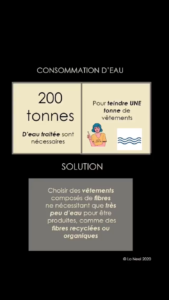
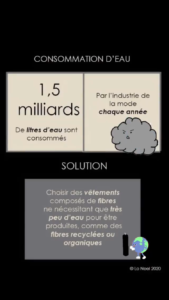
Cotton is one of the textile materials that consumes the most water. As a result, its production requires a very large amount of water. Through the prism of several LO NEEL pieces, we wanted to show that it is quite possible to do without industrial cotton while having a superior quality of clothing. Indeed, our AMI shirt and our AVIKA dress are both made from organic cotton. Producing organic cotton requires much less water than producing cotton industrially. Moreover, organic cotton is softer on contact with the skin. Thanks to this production method, we have been awarded the GOTS label.

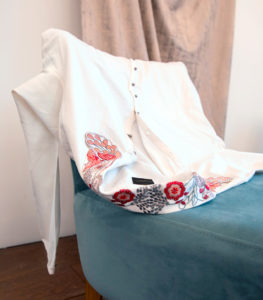
In your daily life, there are several ways to reduce your water consumption. It is advisable to take short showers rather than baths. Using a dishwasher uses ten times more water than washing dishes in a full sink. In times of drought or very hot summers, don’t water your lawn or plantings to avoid unnecessarily depleting water supplies. This could endanger the water table. It is important to leave water supplies to the farmers who need it most.
Finally, we advise you to ban the use of make-up remover pads. Their production pollutes enormously and they are for single use only. Choose washable cottons that can be reused many times. You will thus drastically reduce your waste and your consumption by making a gesture for the planet!


